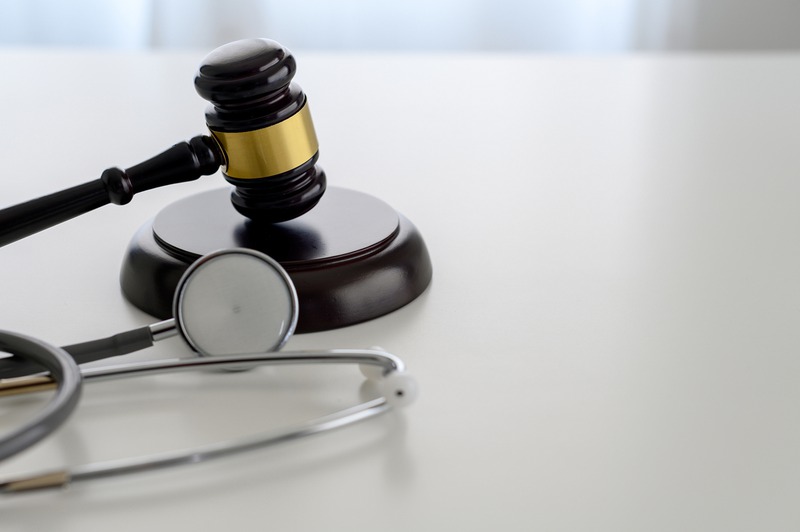We all want to stay healthy and maintain those pearly whites for years to come. But why exactly is teeth cleaning so vital? Maintaining good oral hygiene isn’t just about a sparkling smile; it’s intimately linked to our physical health as well. In this article, let’s discuss the connection between dental health and overall well-being, emphasizing the significance of regular teeth cleaning.
The Connection Between Oral Health and Physical Health
There’s more to oral hygiene than simply avoiding cavities or maintaining fresh breath. Poor oral health can lead to an array of physical health issues. It is believed that inflammation and infections in the mouth can affect overall body health. Research suggests a correlation between gum disease and conditions such as heart disease, diabetes, and respiratory infections. Therefore, ensuring your teeth are cleaned regularly can be a major step in maintaining good health overall.
Preventing Gum Disease Through Regular Cleaning
Gum disease, also known as periodontal disease, is a common oral health issue that can lead to tooth loss. Regular teeth cleaning helps remove plaque buildup, a sticky film of bacteria that can harden into tartar if not cleaned properly. This daily maintenance and professional cleaning keep your gums healthy and reduce the risk of infection. Not only does this prevent gum disease, but it also wards off the systemic health issues associated with it.
Reducing the Risk of Oral Infections
Oral infections aren’t limited to cavities and gum disease. Conditions such as oral thrush and canker sores can also pose problems. Regular professional cleanings help detect issues early on, allowing for prompt treatment and prevention of more serious infections. Moreover, a cleaner mouth is less likely to host harmful bacteria or viral infections.
Emotional and Psychological Benefits of a Clean Mouth
Good oral hygiene isn’t just important for physical health; it also plays a significant role in emotional and psychological well-being. A clean and healthy mouth boosts confidence, allowing you to smile more freely and engage in social interactions without anxiety. Positive feedback from social situations further enhances self-esteem, contributing to a happier, healthier lifestyle.
Enhancing Social Confidence
Bad breath and visible plaque can be sources of embarrassment in social settings, affecting one’s self-confidence. Regular teeth cleaning prevents such issues, allowing individuals to speak, smile, and interact more confidently in public. This confidence does wonders for one’s social and professional life.
Economic Benefits of Regular Dental Care
While it might seem counterintuitive at first, regular teeth cleaning and dental check-ups can actually save you money in the long run. By investing in preventative care, you decrease the likelihood of developing serious and costly dental issues in the future.
Saving on Long-term Dental Costs
Neglecting oral hygiene can lead to extensive and expensive dental procedures such as root canals, crowns, or even dental implants. By maintaining regular cleanings, you can avoid these costly treatments, keeping both your mouth and wallet healthier.
Affordable Access to Professional Dental Care
Access to affordable dental care is essential for maintaining oral health. Regular dental visits and cleanings can be budget-friendly, especially when considering the costly procedures they help to avoid. Many dental practices offer a range of financial plans to fit different budgets, making regular cleanings a feasible option for many. Furthermore, when tooth replacement is necessary, denture Nepean offers a reliable and cost-effective solution, helping individuals regain their smiles and improve their quality of life.
The Importance of Educating Yourself About Oral Hygiene
Understanding the importance of teeth cleaning is vital to maintaining consistent oral hygiene practices. Being informed empowers individuals to make better lifestyle choices that contribute to their dental and overall health. Proper oral hygiene education also helps dispel myths and misconceptions surrounding dental care.
Empowering Yourself with Knowledge
Taking the time to read up on teeth cleaning benefits allows you to understand why dentists stress their importance. This knowledge is empowering, serving as motivation to maintain regular cleanings and improve personal oral care routines. The more you know, the better you care for your teeth.
Utilizing Resources Available in Your Community
Learning doesn’t stop at internet searches and brochures. Local dental clinics hold valuable resources and educational events designed to help patients understand oral health better. Clinics offering Nepean teeth cleaning services often host informational sessions to educate the community on the vital role dental hygiene plays in overall health. These clinics provide a supportive environment where questions can be asked and guidance received.
The Hidden Causes of Bad Breath
While bad breath can sometimes be blamed on strongly flavored foods, chronic bad breath or halitosis often points to underlying dental issues. Consistent plaque build-up, gum disease, and other oral infections can cause bad breath, making regular teeth cleanings essential.
Tackling Halitosis with Professional Cleanings
Beyond brushing and flossing, professional cleanings play a key role in eliminating persistent bad breath. Dentists can access areas that regular brushing can miss, effectively removing plaque and bacteria responsible for halitosis.
Understanding the Role of Diet in Oral Health
Your diet significantly impacts your oral health. Consuming a balanced diet rich in vitamins and minerals promotes healthy teeth and gums, while sugary or acidic foods foster a breeding ground for bacteria, leading to tooth decay and gum disease.
Foods That Promote Oral Health
-
Leafy greens packed with calcium for strong teeth
-
Crunchy fruits and vegetables that act as natural toothbrushes
-
Dairy products that help neutralize acids in the mouth
Avoiding Foods That Harm Your Teeth
Sugary snacks, soda, and sticky candies can lead to plaque build-up and cavities. Instead, choosing water and teeth-friendly snacks can make a big difference. For those living in specific areas, finding trusted dental care in Nepean can assist with dietary recommendations tailored for oral health.
The Role of Routine Check-ups in Preventive Care
Beyond regular cleanings, routine dental check-ups are an integral part of maintaining oral health. They provide a chance to catch and address potential issues before they escalate into more significant problems.
The Holistic Approach to Dental Visits
Regular check-ups allow for comprehensive oral examinations, including screenings for oral cancer, an often-overlooked benefit of dental visits. These examinations are crucial for early detection and peace of mind.
What to Expect During a Dental Check-up
-
Thorough examination of teeth and gums
-
Professional cleaning to remove plaque and tartar
-
Discussion of oral hygiene practices and concerns
-
X-rays to spot hidden issues within teeth and jawbone
Maintaining a Clean Mouth at Home
While professional cleanings are vital, maintaining oral hygiene at home is equally important. Combining these practices ensures comprehensive dental care.
Daily Oral Hygiene Practices
-
Brushing twice a day with fluoride toothpaste
-
Flossing and using an antiseptic mouthwash daily
-
Eating a balanced diet and staying hydrated
When to Visit a Dentist Outside of Regular Check-ups
If you experience any discomfort, persistent bad breath, or visible changes in your teeth or gums, it’s crucial to see a dentist promptly. Quick responses can prevent minor issues from becoming significant concerns, ensuring your oral health remains well-managed.
Final Thoughts
Regular teeth cleaning is vital for maintaining good health. It helps improve general well-being by preventing dental problems, which can affect your overall health. Clean teeth can boost your confidence by keeping your smile attractive. By preventing serious dental issues, regular cleaning can also save you money on costly treatments. Additionally, good oral hygiene encourages a healthy lifestyle. Combining professional dental services with daily at-home care makes managing your oral health straightforward and efficient, ensuring your teeth and gums stay in good condition and contribute positively to your overall health.















